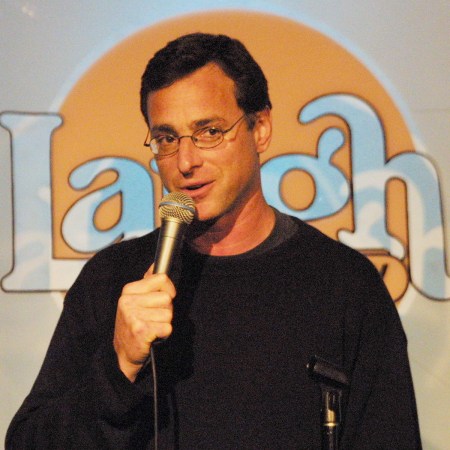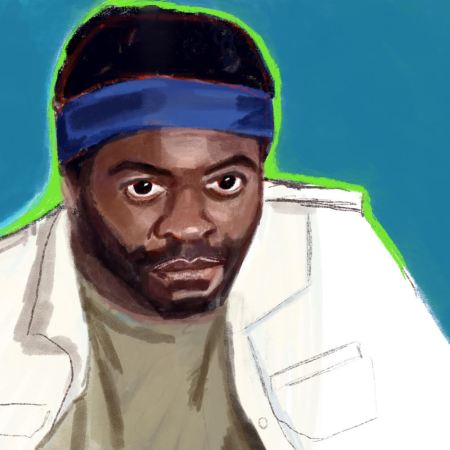Welcome back to “The World According To …”, a series in which we solicit advice from people who are in a position to give it. Our newest installment features Haley Joel Osment, who, at 31, has been acting on television and in movies now for a quarter-century. He rose to fame for his performance in The Sixth Sense and subsequently shone in A.I. Artificial Intelligence, Silicon Valley and — this year alone — The Boys and Extremely Wicked, Shockingly Evil and Vile. The actor talked to InsideHook about love, learning new words and his favorite teacher.
What would you have dedicated your life to if acting hadn’t worked out?
I spent, and spend, so much of my free time following politics. I’m still thinking about how I could potentially be more useful than I am right now. People pick their charitable and political causes, and I’m at the point where I want to make a strong choice about where I can throw my efforts. I probably would’ve put my time into either politics or conservation, as I’ve always loved the outdoors. That’s something that is urgent.
What words would you put on your tombstone?
That’s a trick question, because I want to be cremated. Although, I guess even that is now ruined because it’s not very green. They’re doing that thing where they dissolve pets now, and that’s supposed to be better. Maybe that’ll be approved for human use soon. That’s a really tough one; I don’t think I’ve figured it out yet. Sometimes I think back to when I first started acting, trying to remember if I even imagined what life would be like at this age and beyond. I don’t think I spent too much time thinking about it. I still don’t. I am just focused on the next step.
Do you have a favorite curse word?
Fuck. I like how there’s still a disorganized relationship to what should get a movie rated R and what shouldn’t, and what’s permissible on TV. I like that cursing is not so hot anymore—that having a bunch of curse words in a project doesn’t cause as many problems as it used to, because that’s how people really talk. All the variations of fuck are great because it can be positive, it can be negative. You can use it as every part of speech, and some people are really talented with that.
But not you?
Oh, no. This is my tried-and-true habit of keeping it clean in interviews.
What is a great and possibly uncomfortable question to ask someone if you want the conversation to move past small talk?
On the set of Silicon Valley, one of the writers had a great party game. They go, “All right, What’s your favorite album, and what’s the worst thing you’ve done to another human being? That’ll move past small talk really quickly.
Now, are everybody’s answers real? That’s the question.
What’s your worst habit?
Definitely procrastination. You’ll just open a million tabs on your phone or on your computer and be like, Oh good article, I’ll get back to it. I’ll get back to it. I’ll get back to it. And then it spirals out of control. Twitter only made that worse. For the longest time, it felt like this great moral stand to not have social media. I think that was definitely a healthier mental space to be in, to not be on those things all the time, but it wasn’t like anybody cared if you weren’t on Twitter or not. When I finally did join in like 2013, it was because a publicist was like, “Look, this is how movies are promoted. It’s just going to be easier to do things like that.” And they were right.
At its core, it was a miracle of communication, it’s just such a shame that all the other shit slonked in. I had a fifth-grade teacher that I really liked. He had some connection to JPL; I grew up in L.A., not far away. And it was cool, because a lot of friends’ parents were involved in the Mars Rover and stuff like that. This teacher was a big booster for space travel, and would also say, “This internet, someday you’re going to be able to get the best information.” He had such a positive and optimistic view of what the internet would be. It’s so funny for me to think back to that now.
What’s your favorite novel?
Cat’s Cradle.
Is George Patton still your favorite historical figure?
I would have to say no. Patton sounds like something I just came up with off the top of my head when I was twelve, because I don’t remember reading too much about his part of the war, as much as I did, say, D-Day. That was a big thing for me because I was working with Spielberg at the time, so he gave me some Stephen Ambrose books. I also was in Poland in 2000 shooting a World War II film with Willem Dafoe called Edges of the Lord, which I don’t think ever hit theaters. It was a crazy experience. Actually being in Eastern Europe and shooting a movie in that period, really set me off on a World War II tear that continues to this day.
I remember being really into FDR, as a great liberal president who took us out of the Depression, and now I’m in a phase where I don’t even know what historical figures to look up to. In the current era, it feels more appropriate to focus on the flaws of these people and to have a more reasonable relationship to those historical figures. For all of the good things FDR did, you also have to reckon with internment. It amazes me that people like Washington and Jefferson are held up as moral beings you could aspire to when these guys were slave owners. I think that’s an uncomfortable part of being an American now that still feels really unresolved. There’s a big divide between Americans who have no problem with that and Americans for whom that feels wrong.
You think more deeply about the American media ecosystem than most reporters I know. When did you start thinking about it? Was it just being on Twitter?
I can actually trace this back to a studio teacher I had for many years, through elementary and middle school. She sadly passed away this year. Lois Carl was a classic New Deal liberal Democrat, and a lot of my obsession with presidential politics and history came from her focusing on that in social studies, when I was in third, fourth, and fifth grade. That was my favorite part of doing on-set schooling.
Later on, I remember my angry teenage reaction to L.A. media being invested in everything Paris Hilton rather than what the Bush administration was doing at the same time. Which is, again, an overwrought teenage reaction to things, but that just made a big impression on me.
Obviously we have the media firepower for people to find out things that are important to them, and we are wasting it all on this silly nonsense.
It’s been 20 years since you told a reporter that you loved learning new words. Do you still stretch yourself that way?
Oh, sure. I’ll still do that thing where, if I’m reading a particularly good article and there’s something unfamiliar to me, that’ll go into a growing list of words in my Notes app. But the embarrassing thing about this is, I still haven’t managed to become fluent in another language. I’ve definitely failed on that front. It’s just so easy to speak English everywhere you go in the world. Sophomore year in college, I was going to try to do NYU’s immersive Arabic program, because I really love Middle East history, too, and that felt like a cool thing to do. But then I ended up getting a job in a play and that fell by the wayside. Still have all the books, but haven’t put the time into them.
What’s the last new word that you learned?
Let’s open my computer to see what I put down. I knew this word, let’s be clear, but I remember that part in Succession when she criticizes some ad, like “Oh, that’s jejune.” He goes “Jejune?” She says “Yeah, it means juvenile.” He’s like, “I know what it means, I just thought that only assholes used that word.”
How do you make love stick around?
That’s one of those questions that you could instantly move past small talk with. I feel like it’s the same for loving what you do for a living, or what you do in life, and for loving people, too. Not to go too digressive with this, but I feel like our generation is waiting on love more than have most generations in the past. I don’t know if that’s true, but it certainly feels like it. The numbers definitely show people waiting later to start families and settle down. The most obvious reason for that is economics and, eventually, the climate. I feel like most people’s desire to have children gets cooled every time you see another Delaware-sized piece of ice crashing into the ocean. The question seems like an answer that I give to people when they say, How do you stay in the industry? or What advice do you have for people who want to act? My answer for that is I love it. I enjoy many of the other ancillary parts of being an actor, but I really just love the day-to-day of it, and the craft itself. So when it comes to other dimensions of love, with people and everything, I think it’s being honest about who you are and who they are, and if you’re going to love somebody, love them for who they are— not who you want them to be or who you might imagine them to be.
This article was featured in the InsideHook newsletter. Sign up now.






















